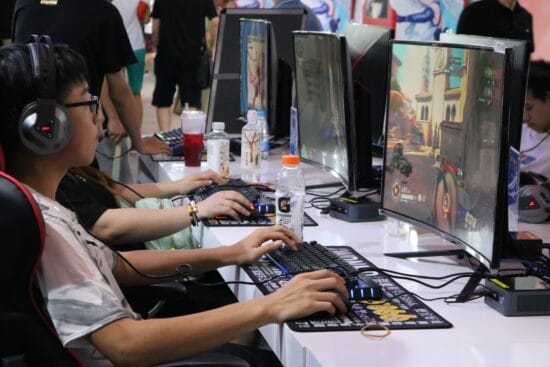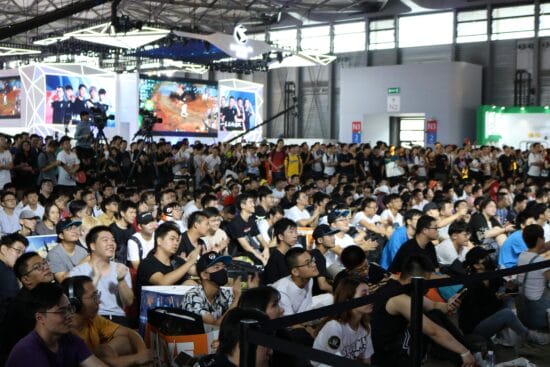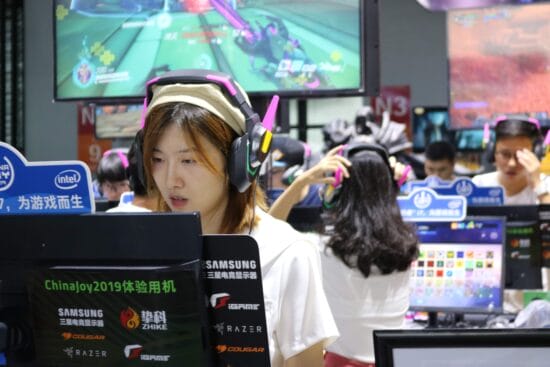E-sports is a term that refers to competitions and competitive scenes in which players compete for victory or defeat in digital (electronic) games, and it can be said that recognition of the term has spread steadily.

Is the game a sport? There were many people who felt uncomfortable with this, and there was a moment of controversy, but I was also one of the people who felt that this was strange, but these days, there are fewer questions about it.
In this way, recognition has spread and internationalOlympicE-sports is expanding internationally, with the International Olympic Committee (IOC) establishing the Olympic e-sports series (OES) and Saudi Arabia hosting the first Olympic e-sports tournament in 2025.
So, I feel that the situation is a little different when it comes to whether the e-sports world is booming.
At least in Japan, it is still not a major industry, but rather a subculture. However, due to continued activities by related parties and organizations, the Japanese e-sports community continues to see small growth. I don’t think that this situation is necessarily bad; in fact, compared to the situation where the company was just following the trend, I think it is creating a foundation for gradual growth.

On the other hand, what about the situation in China, which was booming a few years ago? After interviewing some people close to me in China, it seems that the market has shrunk considerably and awareness of the industry has declined.
In fact, the number of esports-related booths and exhibits is decreasing even at major events such as ChinaJoy.
Before the coronavirus, when esports were booming, professional gamers were treated like celebrities, and some were said to have annual incomes of several billion yen.
Tencent is putting a lot of effort into PR for professional gamers, and a dedicated team was working on branding professional gamers just like an entertainment agency.
In addition to professional gamers, companies that manage casters specializing in e-sports were growing, and related industries were thriving.

However, when I asked some Chinese friends, they said that the popularity of e-sports has been gradually declining recently. When I asked him why this was, he said, “It’s because I can’t win anymore.”
Chinese people like when their country’s athletes are strong, whether it’s e-sports or anything, whether it’s soccer or table tennis, if their country wins, they’ll support them, and if they don’t, they’ll lose interest.

In fact, it is not the case that Chinese professional gamers have become weaker.
In the past, when e-sports was a hot word, billionaires in China used personal investment to establish e-sports team management companies and launch streaming services like Twitch. However, in e-sports, entertainment alone is not enough to generate revenue. Without a clear business plan, it will be difficult, and this is not only the case in China, but various esports-related companies and services that started up on the trend eventually realized the difficulty of monetizing their business and ended their operations one after another.
It’s the same in China, where companies and services started by millionaires have closed down. In the past, Chinese teams used to rely on their financial strength and win by recruiting famous players, mainly from South Korea, but with the increase in funding, they also started attracting overseas players, and as a result their winning percentage decreased. The current situation is that its popularity is declining.

Given the Chinese national character of liking to win, and liking it because of winning, it may be a while before e-sports becomes truly popular in China.
Now, let’s go back a little bit and what about Japan.
In Japan, in the past, the main players on the Japanese LOL (League of Legends) team were Korean. For various reasons, Japan is now dominated by Japanese players, but Japanese professional gamers and e-sports teams are steadily gaining traction around the world. Even before the word e-sports was coined, there were competitive Street Fighter tournaments, and in that sense the implications for Japan are quite deep.

Although there are still big issues as to whether it is commercially viable or not, whether it is profitable or not, I think that Japan’s e-sports industry is growing slowly and slowly as mentioned above.
Although e-sports is still a small bud, there is plenty of room for growth in e-sports in Japan, China, and other countries and regions around the world. I look forward to watching their growth in the future.
コメントを残す